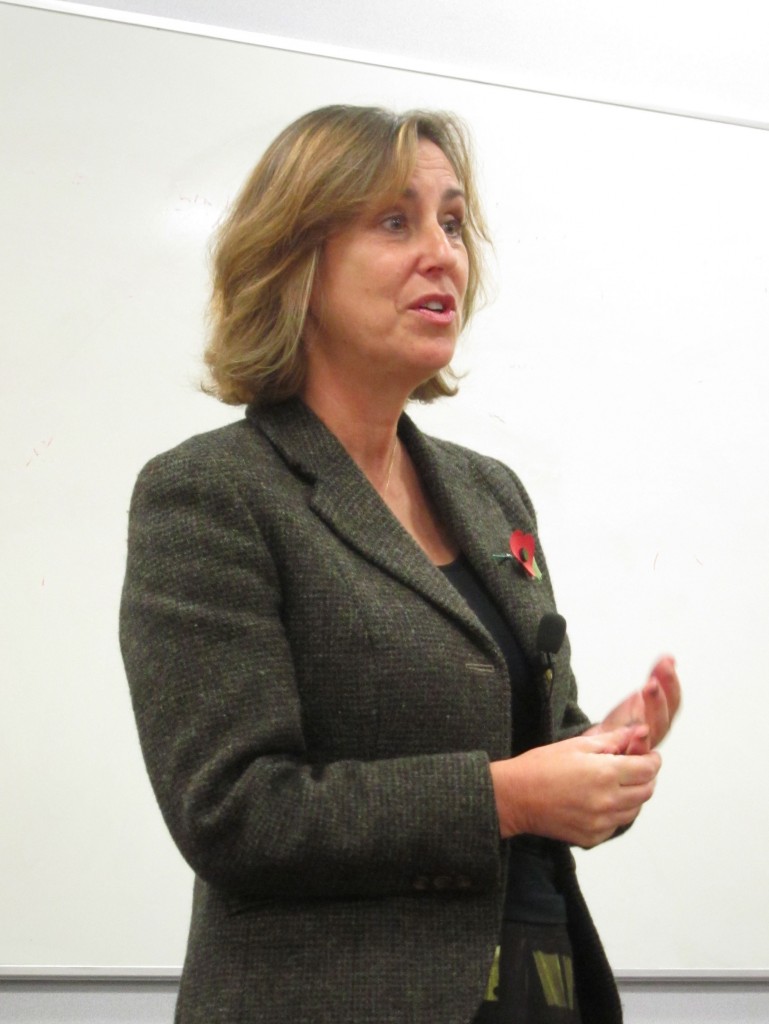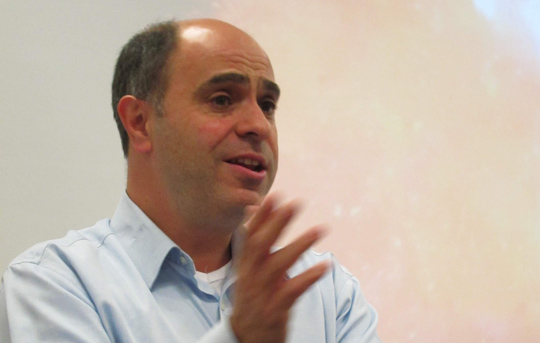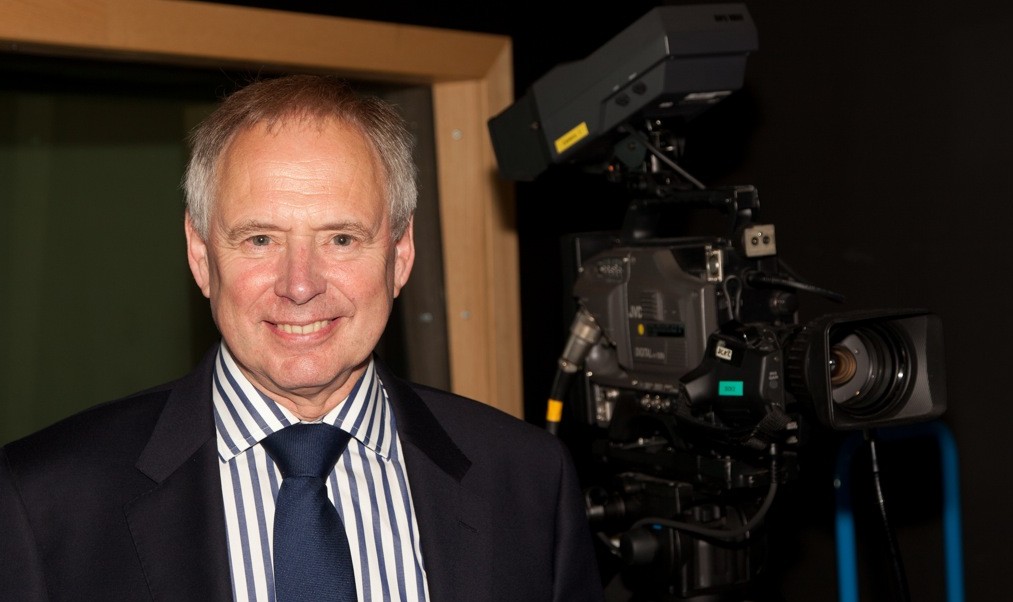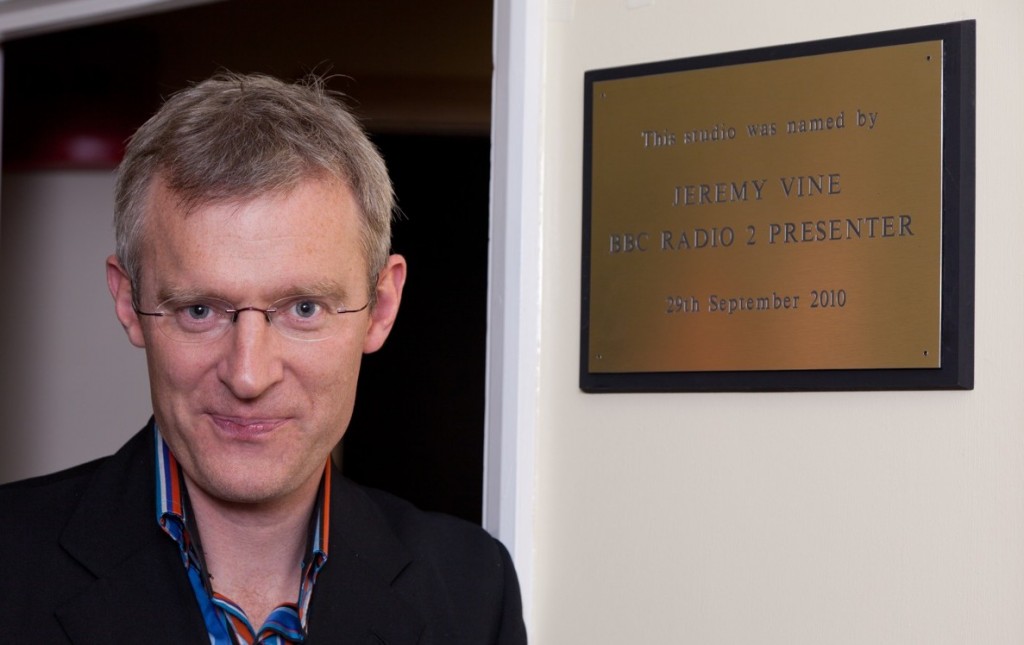You have to be either brave or foolhardy to take over as editor of a local newspaper in the current climate. Circulations are dropping, advertising plummeting, and revenues are through the floor.
But Darren Parkin, the 38 year old editor of the Coventry Telegraph, is not foolhardy. “Surviving the perfect storm: one year on” was the title of his Coventry Conversation last Friday, and survive he has.
Fourteen months ago, Parkin took over a ship that was rocking and reeling on the seas of change. The numbers were down but, worse than that “The Tele” seemed to have lost touch with the heartbeat of the Coventry community. Parkin spent his first weekend as editor reading, eating and sleeping in the newspaper’s library to see if he could rediscover that Holy Grail. One concrete result is a weekly page of community news, a lot of which is written by Coventry University’s journalism students.
The greatest challenge to local newspapers today is without a doubt the internet. Why buy when you can find it online? Advertising, especially classified, has fled to cyberspace and the eyeballs have followed. Parkin has met the probelm head on with some hugely popular blogs on the Cov.Telegraph website. One of those, called “The Geek Files“, is by far and away the most popular in the Mirror regional newspapers stable, although Parkin admitted that he had thought it was a bad idea when it was first suggested.
On taking over at the Telegraph, Parkin was faced with a staff of journalists who had become comfortable. Too comfortable. The previous editor was in post for just a year and his predecessor for over a decade. He thinks he has remotivated and refocused the staff. He was full of praise for his newsroom and their talent.
The “perfect storm” is far from over though. Over Christmas, the Telegraph put up its cover price by 3p to 45p, to make up for the anticipated 20 per cent rise in the cost of newsprint this year.
Initially, as expected, the rise reduced sales but they seem to be back on the recovery track. Parkin admitted that all he could do anyway was moderate and not reverse that long-term decline. In 1953, the Telegraph had a circulation of around 100,000. Today it is around 35,000.
But Parkin is willing to be innovative. He has forged new partnerships with the university, and with BBC Coventry and Warwickshire. He and they and the local commercial radio stations are involved in the Coventry News Forum, which is brokered by the university journalism department. That meets monthly and has so far proved to be beneficial to all. As an example, coverage of the 70th Anniversary of the Blitz got deeper following a News Forum meet.
Parkin started his career as a Youth Training Scheme intern on the Dewsbury Reporter 22 years ago, paid a pittance by the state. Since then he has been Young Journalist of the year three times, a chief reporter on the Solihull Times and at 24, Britain’s youngest editor after taking the top job at the Wolverhampton News.
From 2005, he was editor in chief of the well-regarded weeklies division of Coventry Newspapers and since November 2009 the editor of the Coventry Telegraph – a job he told the audience he had always coveted.
Perfect or not, one suspects that Parkin will survive many more storms.
John Mair runs the Coventry Conversations series at Coventry University. He is a senior lecturer in journalism at the university and co-ordinates the Coventry News Forum.




